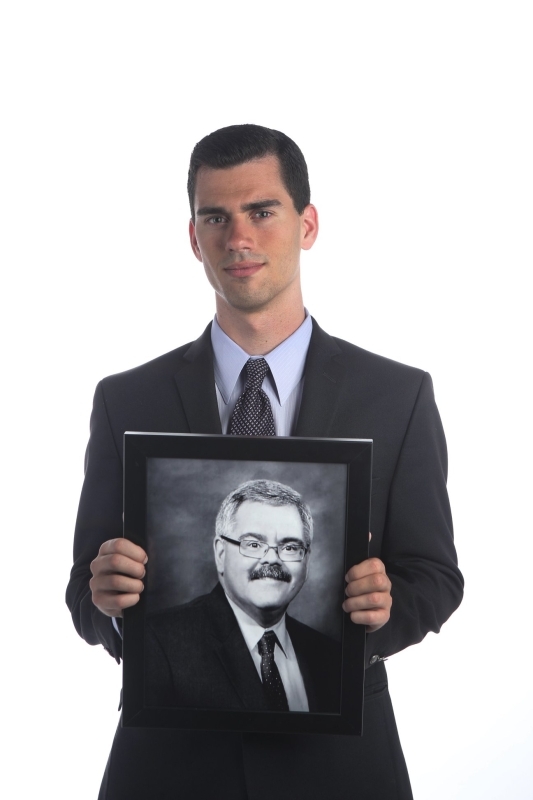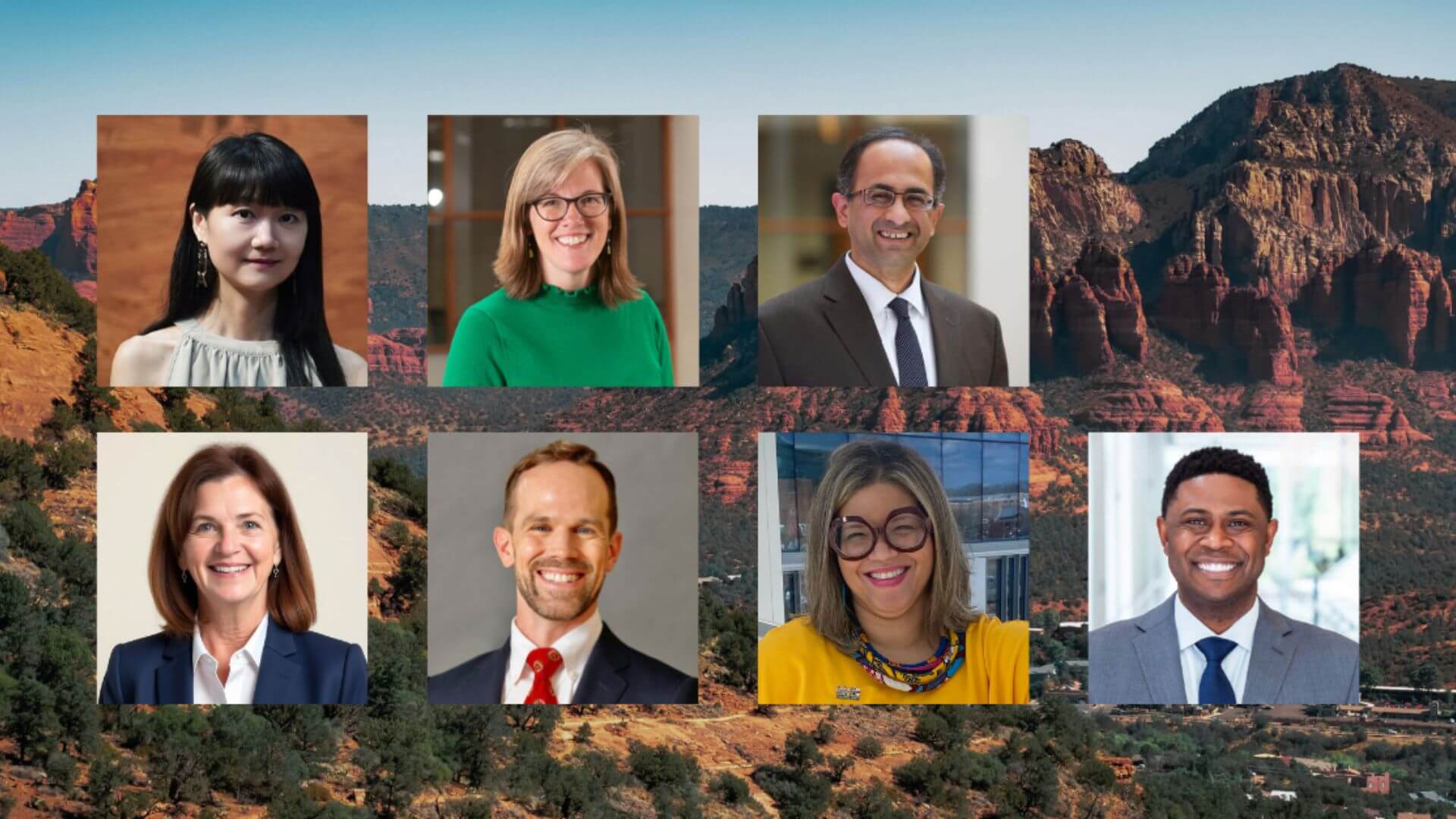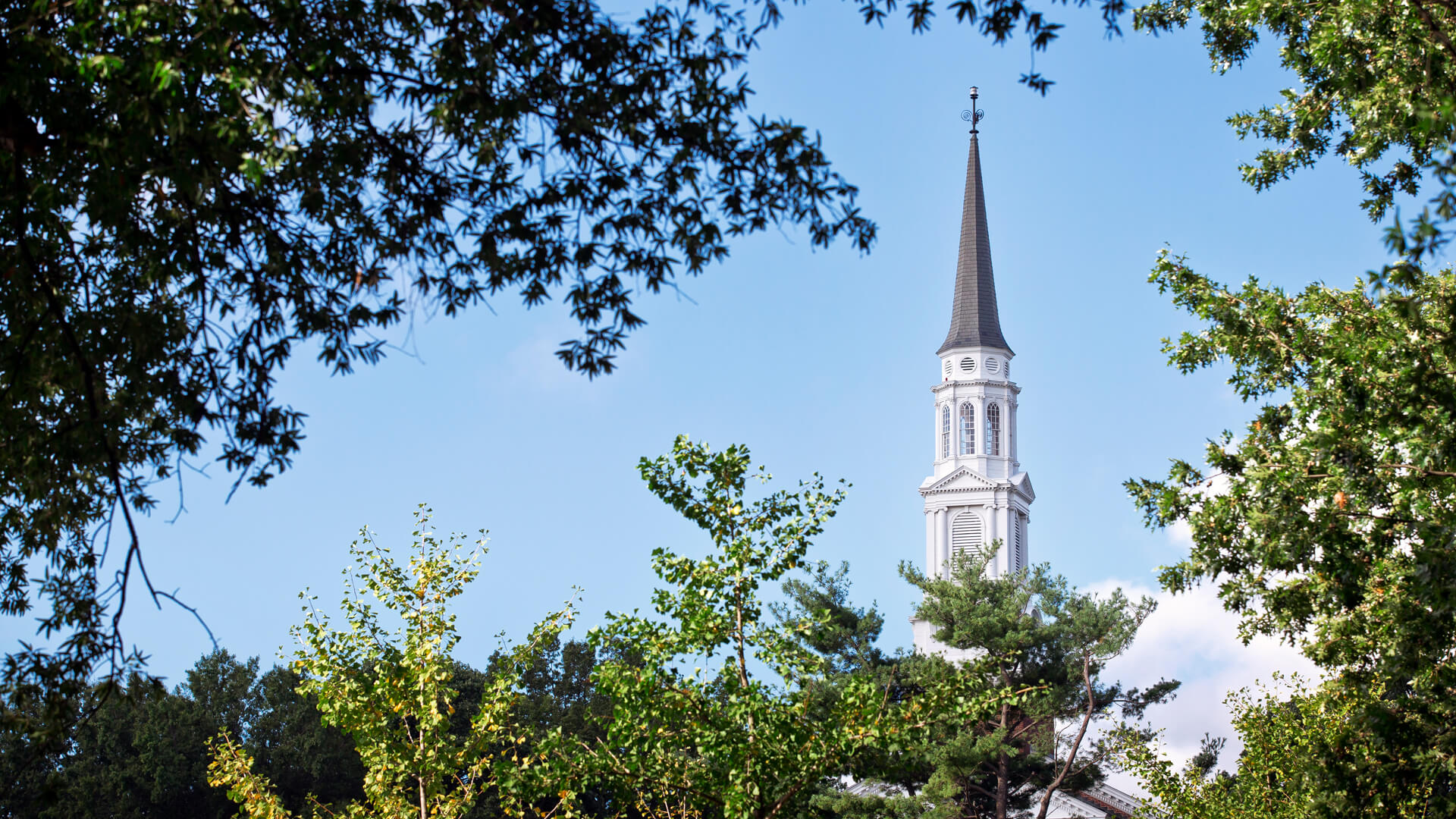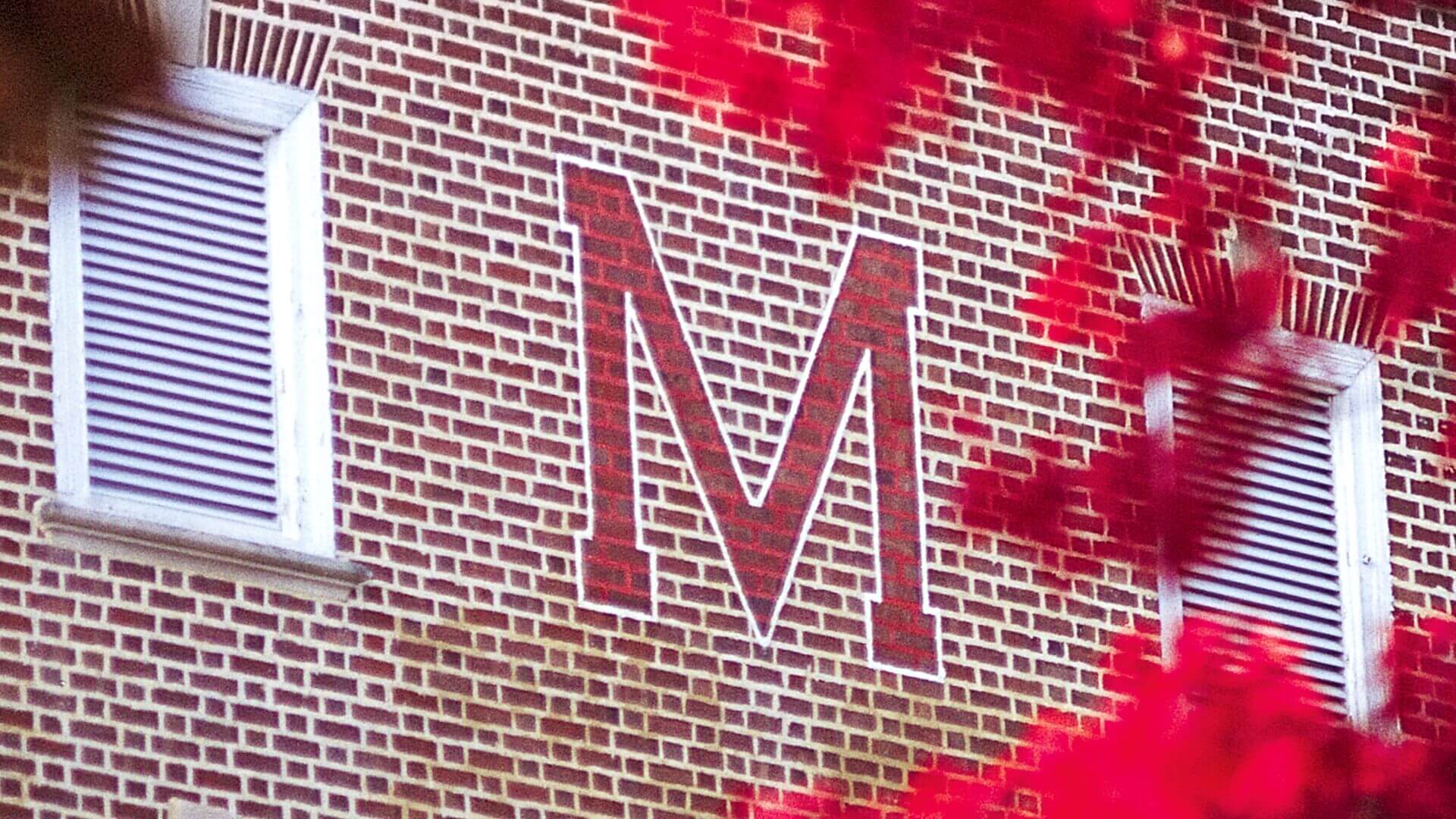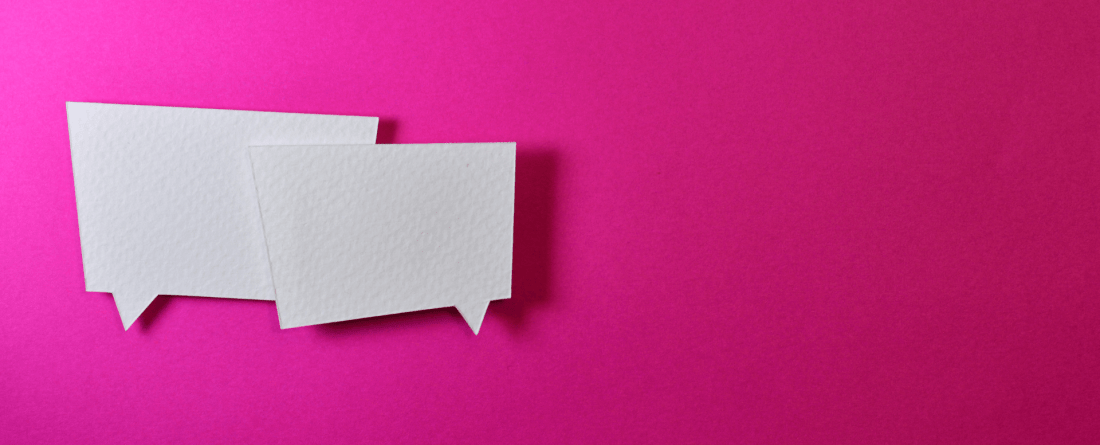
The following column is part of our Do Good Student Voices series.
In this series, students highlight topics they are passionate about and share what they are doing to ignite impact on campus and beyond. The series is a collection of students' stories, in their own voices, about their own experiences, inspirations, and actions for areas they care deeply about.
The following column was written by Matthew Hollister ‘18, Do Good Challenge Alum. Matthew is a social entrepreneur on a mission to make sure medicine doesn’t go to waste as the co-founder of the James Hollister Wellness Foundation. In addition to being the CEO of the James Hollister Wellness Foundation, Matthew is also the co-founder of Save Inc. which he serves as a board member. He graduated with a Bachelor's degree in General Biology with a minor in General Business and is an alumni of the Public Leadership College Park Scholars program. In this piece, he reflects on his own Do Good Challenge journey and what it meant to him. For questions about the piece below, we encourage you to reach out to the author directly at matthew@jhwellnessfoundation.org.
Every entrepreneur could benefit from looking back at their journeys every once and a while. Not only to see how far they’ve come, but also to see whose lives they’ve helped along the way. In my case, it also gives me a chance to think about the people who’ve helped me along my journey as well. If not for the help and opportunities the Do Good Challenge provided, there would be no James Hollister Wellness Foundation.Matthew Hollister Class of 2018
For five and a-half years I’ve found myself dedicating several hours each day to cataloging a seemingly endless amount of donated medications. My latest “pet-project” has been to put together a packing list of medicine that will be shipped to Bolivia as a part of the country’s COVID-19 relief effort. I begin by typing up a list of medication with several thousands of line items, then translate everything into Spanish, then get to dive into the bowls of the State of Maryland’s bureaucracy to get all the necessary certifications that allow me to ship the medicine. This tedious process makes it rather easy to lose sight of how I got to this point; or sometimes the more difficult question- if what I’m doing will actually matter.
For the same reason why a chapter in a book will only be meaningful if the reader understands the chapters preceding it, it’s also important for entrepreneurs to think back every once in a while to reflect on how they got to where they are now. I’ve found that meaning and purpose can often be found if given enough context. My own entrepreneurial story began at the University of Maryland in the Fall semester of 2015. It was on the very first day of class that I got a call from my sister letting me know that my father had just passed away from cancer. While trying my best to keep a cool composure, I excused myself from class and made my way home to mourn with my family. About a week later, after the funeral and memorial services had ended, my family was left with a sizable amount of expensive cancer medication that we had absolutely no idea what to do with. The hospital would not take them due to liability concerns, and so the only other option my family had was to drop them off at a local police station. A few days later, we discovered that all the medications we gave to the drop off zone were just sent away to be incinerated.
Having been raised under the influence of grandparents who grew up during the Great Depression, a ‘waste not, want not’ mentality was drilled into me at an early age. Knowing that thousands of dollars worth of perfectly good medication had just gone up in smoke left a bad taste in my mouth. I wanted to find an alternative solution, as my family’s case of wasting medication wasn’t exactly unique. About $10 billion dollars worth of excess medication is wasted every year in the United States alone due to situations like my family experienced. Despite this waste, drug shortages are a perpetual problem in developing nations. After talking about these issues with an old friend from high school, we decided to create a nonprofit organization dedicated to alleviating this unnecessary medicine waste.
In theory, our idea was simple. We would incorporate ourselves as a nonprofit, collect viable medications that hospitals and nursing homes have in excess, and then send the meds to countries experiencing drug shortages. The problem was that we had no idea where to start. Luckily, my friend and I learned about the Do Good Challenge in a class I was taking in the Public Leadership Scholars program.
Creating a charitable foundation to reduce medicinal waste quickly became my capstone project for the Scholars program, and I entered the project into the Do Good Challenge that same day. On October 16, 2015 we launched the James Hollister Wellness Foundation, named in honor of my late-father, with a $500 Mini-Grant of $500. That initial funding enabled us to pay the IRS fees to obtain 501(c)3 nonprofit status. A few months later, the Challenge began and we took advantage of the mentorship offerings to develop a network of local pharmacies. It was from one of these pharmacies that the Foundation received its first ever donation of medication. We offered the pharmacist an opportunity to donate that medication in exchange for a tax-write off, rather than paying for it to be hauled away and destroyed. The pharmacy accepted our offer and we in turn gave the medication to a student organization called MedFund, which provided aid to those living in poverty in Bolivia. Interestingly enough, not only was MedFund also competing in the Do Good Challenge with us, but they also went on to become that year’s winner. The James Hollister Wellness Foundation only made it to the semi-finals, but we were undeterred. The Do Good Institute provided our new Foundation with something that we had difficulty finding anywhere else; a willingness to listen to our idea, and a genuine desire to help bring it to reality.
The following year, I signed the Foundation up for a second round in the Do Good Challenge; and we received another Mini-Grant of $500, which we used to finance a larger fundraiser that raised $10,000. With this capital at hand, we were able to organize ourselves to serve the healthcare needs of 11,000 individuals in Bolivia and Honduras. These results propelled us straight through the semi-finals and landed us a spot in the Final round of the Challenge. For hours on end I worked with Do Good mentors to craft my pitch as best as I could, practicing it with them repeatedly. During these sessions, I learned one of the most important lessons I could learn as an entrepreneur; how to tell a story that would allow me to develop an emotional connection with the audience.
Making a compelling case as to why a project is worthwhile involves so much more than throwing a bunch of facts and figures at your audience. You need to show people the tangible impact of their work, and articulate how that impact has served others. So while I was on stage for the Do Good Challenge Finals, presenting in front of an auditorium filled with strangers, I allowed myself to show a level of authenticity that I normally wasn’t accustomed to showing. My co-founder and I told the story of how we created the Foundation, but this time we also told the stories of the people that we’ve helped. We reminded the audience that there were real people behind the “11,000 served” figure we showed on our presentation screen. We wanted to convey the message that the main purpose of the James Hollister Wellness Foundation isn’t simply to save medication, it’s ultimately to save lives.
The judges and audience responded to that authenticity, and that night, the Foundation walked away with $6,500. Not only did we win the $5,000 Venture-track grand prize of the 6th Annual Do Good Challenge, but we also won an additional $1,500 from the Audience Choice Award. Ever since, the Foundation has continued to grow and expand its outreach to others in need. The Challenge was just the beginning.
So as I continue to spend hour after hour cataloging medication that will eventually be sent to our old friends at MedFund to help their Bolivian COVID-19 relief effort, I often find myself thinking about that lesson the Do Good Challenge taught me: that the numbers on the packing list I’m making represent real people who will get real help as a result of the work being done by the Foundation that bears my father’s name. Every entrepreneur could benefit from looking back at their journeys every once and a while. Not only to see how far they’ve come, but also to see whose lives they’ve helped along the way. In my case, it also gives me a chance to think about the people who’ve helped me along my journey as well. If not for the help and opportunities the Do Good Challenge provided, there would be no James Hollister Wellness Foundation. For that, the Challenge will always have my thanks.

